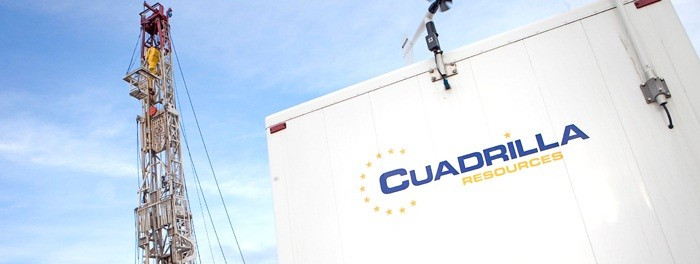Fracking to Continue Despite Blackpool Tremors

Despite two incidents of mild tremors near Blackpool in 2011, government agreed to continue controversial fracking with more cautious measures.
The test operations performed by the well operator Cuadrilla Resources were halted after it reportedly triggered mild earthquakes of magnitude 2.3 and 1.5, a year ago.
The report commissioned by the Department of Energy and Climate Change (DECC) also confirmed that the tremors were directly caused by fracking, although no damages were reported during the seismic events.
Meanwhile, people who oppose the plan like Friends of the Earth are of the opinion that there should be better ways of tapping energy than by causing tremors. More potential resources like Sun and wind energies can be explored, they argue.
Similarly environmentalists believe that fracking causes ground water and air pollution as the drilling leads to the emission of serious air pollutants like benzene and methane which can cause diseases like cancer, respiratory diseases and other neurological problems.
The residents in the affected areas are also continually opposing the plans.
However, the DECC has come up with certain recommendations before further fracking takes place.
Recommendations
The report titled 'Preese Hall Shale Gas Fracturing Review and Recommendations for Induced Seismic Mitigation' recommends certain precautionary measures to mitigate the risk of future earthquakes during fracking.
- Hydraulic fracturing procedure should invariably include a smaller pre-injection and monitoring stage before the main injection.
- Hydraulic fracture growth and direction should be monitored during future treatments.
- The operations should be subject to an effective monitoring system that can provide automatic locations and magnitudes of any seismic events in near real-time.
- Operations should be halted and remedial action instituted, if events of magnitude 0.5 or above are detected.
While responding to the suggestions of the panel, the Cuadrilla's Chief Executive Mark Miller said in a statement, "We are pleased that the experts have come to a clear conclusion that it is safe to allow us to resume hydraulic fracturing, following the procedures outlined in the review. Many of today's recommendations were contained in the original expert studies we published in November last year, and our supplementary information sent to DECC in January."
Miller also added that the company has already started to implement the recommendations put forth.
The report also emphasises on a traffic light monitoring system where the operations are immediately halted if the process triggers a tremor of 0.5 magnitude against the threshold of 1.7 suggested by the company. Earthquakes up to magnitude of 3.0 are not known to have caused damages although quakes above 2 can be felt on the surface.
What is Fracking?
Fracking or hydraulic fracturing is the process of extracting natural gas from the ground by injecting water, sand and chemicals in high pressure into shale rock. A well is drilled hundreds of meters deep and then water and sand are pumped in full force to release methane gas.
Shale gas is perceived to be a relatively cheaper energy supply. According to the estimates by Cuadrilla, the resources at Lancashire alone are to be around 200 trillion cubic feet.
However British Geological Survey through a pragmatic approach estimates the resources to be around 4.7 trillion cubic feet.
A significant percentage obtained from the above estimate can easily be a major gas supply for the UK. Shale gas is already one of the main sources of energy in the US.
© Copyright IBTimes 2025. All rights reserved.





















